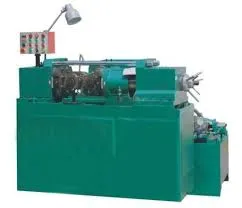
-
 Afrikaans
Afrikaans -
 Albanian
Albanian -
 Amharic
Amharic -
 Arabic
Arabic -
 Armenian
Armenian -
 Azerbaijani
Azerbaijani -
 Basque
Basque -
 Belarusian
Belarusian -
 Bengali
Bengali -
 Bosnian
Bosnian -
 Bulgarian
Bulgarian -
 Catalan
Catalan -
 Cebuano
Cebuano -
 Corsican
Corsican -
 Croatian
Croatian -
 Czech
Czech -
 Danish
Danish -
 Dutch
Dutch -
 English
English -
 Esperanto
Esperanto -
 Estonian
Estonian -
 Finnish
Finnish -
 French
French -
 Frisian
Frisian -
 Galician
Galician -
 Georgian
Georgian -
 German
German -
 Greek
Greek -
 Gujarati
Gujarati -
 Haitian Creole
Haitian Creole -
 hausa
hausa -
 hawaiian
hawaiian -
 Hebrew
Hebrew -
 Hindi
Hindi -
 Miao
Miao -
 Hungarian
Hungarian -
 Icelandic
Icelandic -
 igbo
igbo -
 Indonesian
Indonesian -
 irish
irish -
 Italian
Italian -
 Japanese
Japanese -
 Javanese
Javanese -
 Kannada
Kannada -
 kazakh
kazakh -
 Khmer
Khmer -
 Rwandese
Rwandese -
 Korean
Korean -
 Kurdish
Kurdish -
 Kyrgyz
Kyrgyz -
 Lao
Lao -
 Latin
Latin -
 Latvian
Latvian -
 Lithuanian
Lithuanian -
 Luxembourgish
Luxembourgish -
 Macedonian
Macedonian -
 Malgashi
Malgashi -
 Malay
Malay -
 Malayalam
Malayalam -
 Maltese
Maltese -
 Maori
Maori -
 Marathi
Marathi -
 Mongolian
Mongolian -
 Myanmar
Myanmar -
 Nepali
Nepali -
 Norwegian
Norwegian -
 Norwegian
Norwegian -
 Occitan
Occitan -
 Pashto
Pashto -
 Persian
Persian -
 Polish
Polish -
 Portuguese
Portuguese -
 Punjabi
Punjabi -
 Romanian
Romanian -
 Russian
Russian -
 Samoan
Samoan -
 Scottish Gaelic
Scottish Gaelic -
 Serbian
Serbian -
 Sesotho
Sesotho -
 Shona
Shona -
 Sindhi
Sindhi -
 Sinhala
Sinhala -
 Slovak
Slovak -
 Slovenian
Slovenian -
 Somali
Somali -
 Spanish
Spanish -
 Sundanese
Sundanese -
 Swahili
Swahili -
 Swedish
Swedish -
 Tagalog
Tagalog -
 Tajik
Tajik -
 Tamil
Tamil -
 Tatar
Tatar -
 Telugu
Telugu -
 Thai
Thai -
 Turkish
Turkish -
 Turkmen
Turkmen -
 Ukrainian
Ukrainian -
 Urdu
Urdu -
 Uighur
Uighur -
 Uzbek
Uzbek -
 Vietnamese
Vietnamese -
 Welsh
Welsh -
 Bantu
Bantu -
 Yiddish
Yiddish -
 Yoruba
Yoruba -
 Zulu
Zulu
High-Quality Thread Rolling Machines Available for Export by Leading Manufacturers Worldwide
Thread Rolling Machine for Sale A Comprehensive Guide for Exporters
In the world of manufacturing, the demand for precision-engineered components has never been greater. Among the various processes employed in metalworking, thread rolling stands out for its ability to enhance the strength and durability of threaded fasteners. This article explores the significance of thread rolling machines, their market relevance, and essential considerations for exporters looking to sell these machines globally.
The Importance of Thread Rolling Machines
Thread rolling is a cold-forming process that creates threads on metal components without the need for cutting. This method not only improves the tensile strength of the threads but also enhances their surface finish, making them more resilient to wear and corrosion. As industries such as automotive, aerospace, and construction continue to expand, the need for high-quality threaded parts has skyrocketed, driving the demand for advanced thread rolling machines.
Thread rolling machines utilize cylindrical rollers to deform flat or round metal bars into the desired thread profile. Their efficiency and effectiveness position them as vital assets in any manufacturing environment that relies on threaded components. Considering the ongoing industrial growth, investing in thread rolling machines can yield significant returns for manufacturers willing to embrace this technology.
Market Trends and Opportunities
The global market for thread rolling machines is witnessing robust growth, attributed to the increasing demand for precision-engineered products. As countries modernize their manufacturing capabilities, there is a corresponding rise in the import of advanced machinery, including thread rolling machines.
Exporters play a crucial role in this market dynamic. They not only provide essential equipment to manufacturers worldwide but also contribute to the advancement of technologies in developing economies. Countries such as India, China, and several nations in the Middle East are experiencing a surge in demand for thread rolling machines as their industrial sectors evolve. Exporters can tap into these emerging markets by offering high-quality machines that cater to the specific needs of local industries.
thread rolling machine for sale exporters

Key Considerations for Exporters
1. Quality Assurance When exporting thread rolling machines, quality is paramount. This encompasses the durability of the machines, their performance consistency, and compliance with international standards. Exporters should ensure that their products undergo rigorous testing before entering the market.
2. Customization Different industries may require specific modifications to the standard thread rolling machines. Exporters should be prepared to offer customization options that cater to the unique needs of various sectors. This flexibility can enhance competitiveness and attract a broader client base.
3. After-Sales Support Providing excellent after-sales service is crucial for building long-term relationships with clients. Exporters should establish efficient communication channels for troubleshooting and maintenance support. This commitment to service can set exporters apart in a competitive market.
4. Market Research Understanding market dynamics and consumer preferences in different regions is vital. Conducting thorough research can help exporters identify potential clients, tailor their marketing strategies, and anticipate competition.
5. Regulatory Compliance Exporters must navigate various regulatory landscapes when selling machinery overseas. It is essential to familiarize oneself with import regulations, certifications, and safety standards in target markets to ensure compliance and avoid legal issues.
Conclusion
The market for thread rolling machines presents a wealth of opportunities for exporters looking to expand their business footprint. By understanding the significance of these machines, capitalizing on market trends, and employing strategic approaches, exporters can establish themselves as key players in the global manufacturing landscape. As industries continue to evolve, the role of high-quality, efficient thread rolling machines will only become more crucial, paving the way for a promising future in the export sector.
